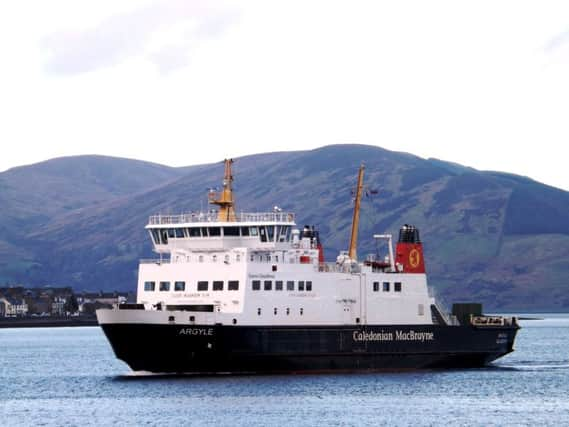CalMac worth £270m to Scotland’s economy


The Fraser of Allander Institute conducted a study looking at the economic activity created by the company’s operations around Scotland.
The report, which examines the operations of the ferry and port operator in detail, is being unveiled at the Scottish Transport Conference in Edinburgh today.
Advertisement
Hide AdAdvertisement
Hide AdIn the headline findings, it estimated that CalMac’s £145 million of turnover actually supported a total turnover of £269.8 million in firms around Scotland as a whole.
It also revealed that CalMac, the UK’s largest ferry network operator, employs 1,476 people and supports a total of 5,883 jobs in Scottish mainland and island communities.
CalMac was further described as a key channel of support for commercial activity on the islands it serves, having carried 92,734 commercial vehicles last year.
Report author Stewart Dunlop, research fellow at the institute, said: “Items exported from the islands include food and drink products, notably high value exports such as whisky and shellfish, both of which contribute significantly to total Scottish exports.
“In terms of imports, CalMac’s activity covers the majority of items sold by local retailers, including fuel, food, mail, medical supplies, oil, gas and utilities, without which it would be difficult to maintain an acceptable quality of life on the islands.”
Martin Dorchester, managing director of CalMac Ferries, said: “We see our role as being to deliver the highest possible value to the island and mainland communities we serve by the investment we make in people, in the transport sector and in the Scottish economy as a whole.
“That value can only be delivered effectively by ensuring that we go beyond simply being a transport provider. That means delivering essential, lifeline services which provide access to work, education and health services, help people maintain contact with family and friends and ensure supplies of fresh food, fuel and mail to local people.”